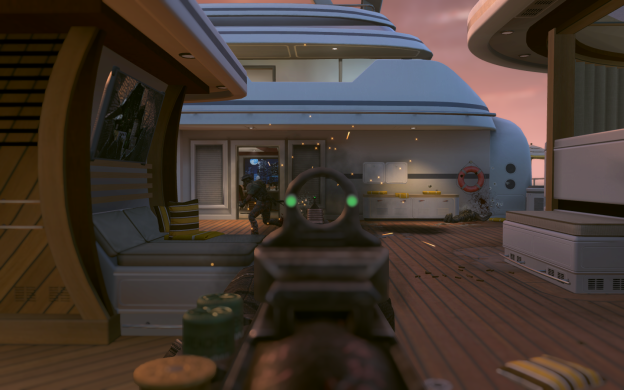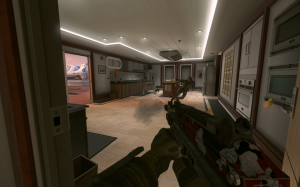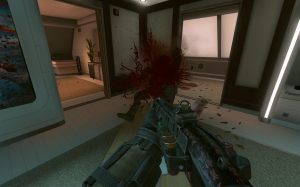There is a lot of faith in the gaming internet community, faith in persons, companies, and technologies. A lot of faith in the technology, such that any explanation as to why an outcome was arrived at is handled with a zealous response.
If you lost a gunfight, to explain what happened is to be a whiner. A response of qq would be had, no matter how reasoned, or accurate your explanation was. If you won it, to explain it beyond a claim of supremacy is to get muddled and take the game too seriously. In both cases, you are supposed to simply accept what has happened. The game has spoken, and that is the way things are, and any suppositions that the networking could have been structured differently, or the gameplay balanced in a way to overcome the flaws of a particular structure, are heretical.
To call into a question a defeat, is to call into question that victory, but also past victories. This is understandably uncomfortable for many. As a distinctly mediocre player (1.12 KD in Black Ops 2) I had few hesitations in exploring outside possibilities. Yes, I won more encounters than I lost, but I lost some in particularly curious manners. I began to realize that I also won some in even more curious manners. You see to most gamers, the game is magical. It is an objective arbiter, and what goes in it is what goes.
Any sufficiently advanced technology is indistinguishable from magic. -Arthur C. Clarke
When participated with at a surface level, gaming appears sufficiently advanced. Even when examined it can sustain that front. The trick is in the edge cases, and the edge cases are what gunfights are all about. Many games update players on what has happened in a linear order. Each player has a number assigned when they join the server, as events happen each player is updated and their world adjusted per that number. Obviously there are disputes between players, and their number is usually the deciding factor. (All of this is a gross oversimplification, but I’m not a programmer). When you couple this with anti-lag logic and prediction, you can get bizarre behaviors. The top image for this post shows me one-shotting a player, aiming five feet behind them, in the opposite direction of where they were running. It made no sense for me to get that kill, but I did. In the next shot you can see me dying to SMG fire, but in the prior moments you could see my buckshot pass through him, twice, without dealing damage.
Above, you can see with the caption a situation I should not have survived, and the game even depicted the animations and positions to suggest that I would not. These are edge cases, but they can happen dozens of times in a game. Particularly one such as Call of Duty with its slow player movement, high rates of fire, and high damage output.
A lot of people play Call of Duty, and similar games. A lot of people have faith in the magic of that technology, but the technology is in fact insufficient for the game design. Culturally, gamers must grow so as to challenge assumptions and existing technology. In doing so, we can experience better games, as designs are made to match the technology involved, and vice versa. Call of Duty can be fun, but at present it is not playing to the strengths of its technology.
Learn about the games you are playing, how they work, and expect more from them.




Yes! It’s not magic, their lag compensation screwed up. A good new multiplayer shooter needs to come out.
Indeed one does. Quake Live works alright, but that has more to do with the game design of moderate speed characters and lower damage weapons with more projectiles. However I still see rail kills where the shot was several feet behind the target, and I have seen those in matches concerning actual cash payouts. The sort that cover rent and groceries.